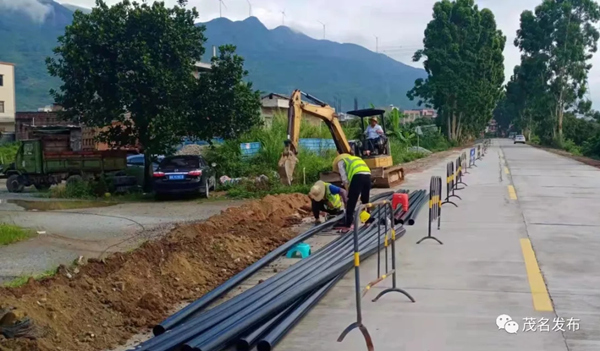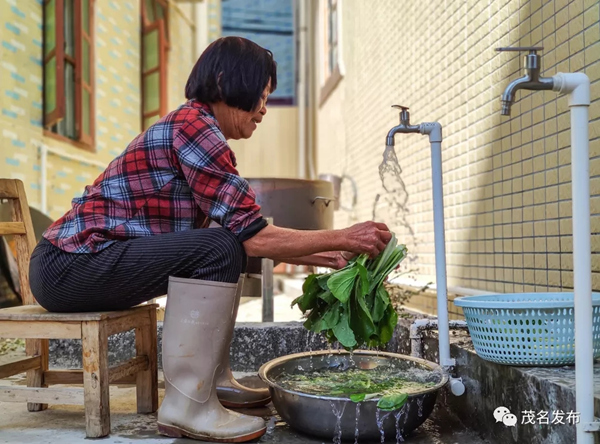Dianbai promotes water supply in rural areas
- (chinadaily.com.cn)
- Updated: 2021-12-08
Dianbai district in Maoming has been promoting the development of centralized rural water supply as a major livelihood project.
In order to achieve drinking water safety, Dianbai has invested 335 million yuan ($52.63 million) and provided centralized water supply for 51,277 households consisting of 239,752 people as of the start of November, 2021, accounting for 98.1 percent of households and 98.14 percent of people in the district.

Workers install water pipes in Dianbai. [Photo/WeChat account: maofabu]
The water pipe in Baishi village, Huangling town has been extended to villagers' homes, giving them access to safe drinking water.

A villager uses tap water to wash vegetables. [Photo/WeChat account: maofabu]
In the past, villagers had to use water from wells and mountain springs, which was not always safe. Tap water is both safer and more convenient.
Li Jian, a villager in Baishi, said that his home gained access to tap water in 2020. Although there were 10 people in his family, the monthly water consumption was only 20 cubic meters, costing about 30 yuan.
In addition, thanks to government subsidies, each household only has to pay 1,000 yuan to install water pipes. The government has spent 292 million yuan, including 24.04 million yuan in municipal fiscal funds, 198.87 million yuan in district fiscal funds, and 69 million yuan raised by the people.
Baishi Village's centralized water supply services 14 natural villages and provides centralized water supply to 885 households, accounting for 91 percent of the village's 974 households and 95 percent of its population.


